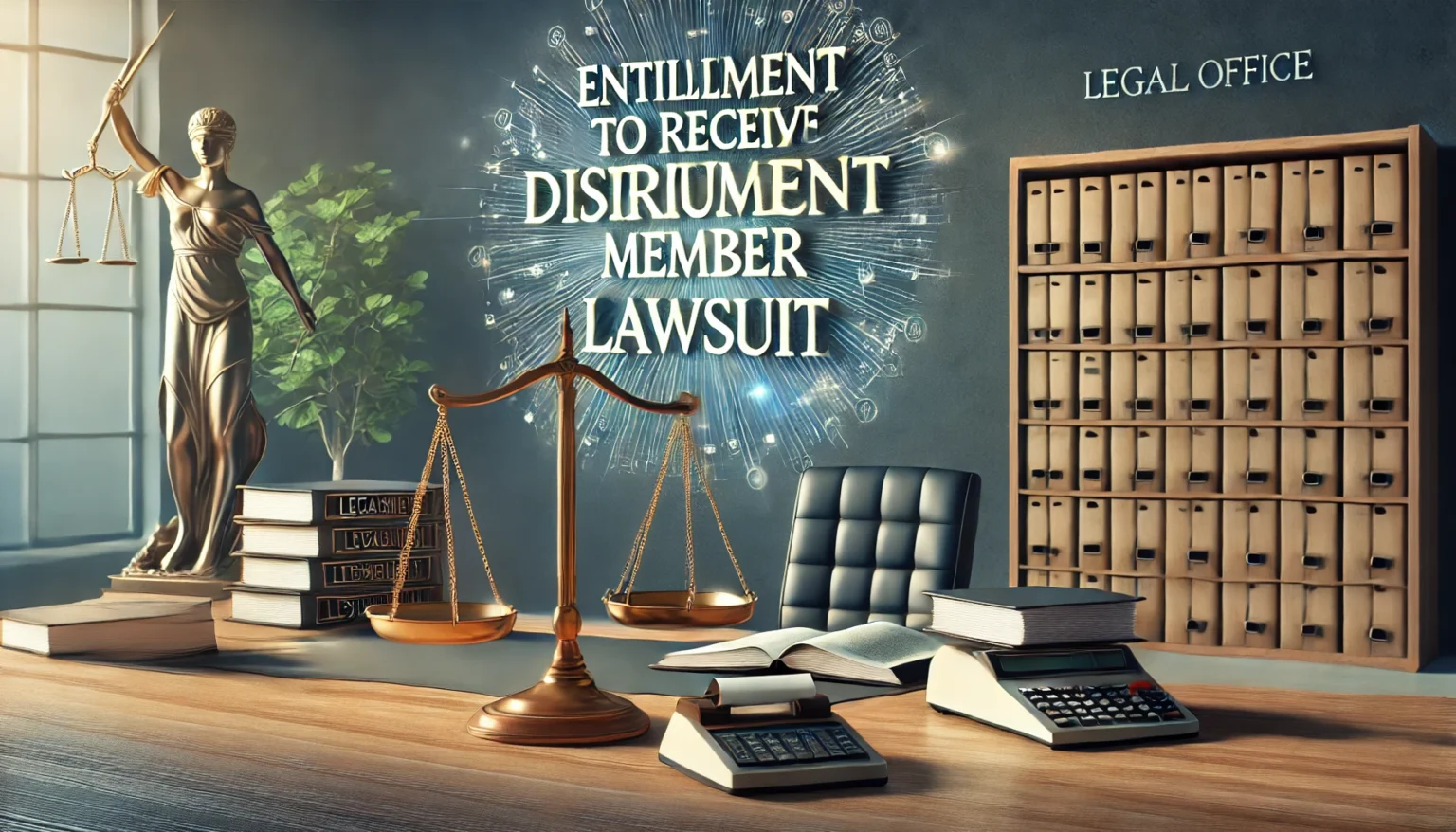Distributions are an essential part of being a member in a business entity such as an LLC or partnership. These distributions represent a member’s share of the profits and are often outlined in the business’s operating agreement or governed by state laws.
When disputes arise over the entitlement to receive distribution, members may find themselves pursuing legal action, leading to what is commonly referred to as an entitlement to receive distribution member lawsuit. This article provides an easy-to-follow overview of entitlement to distributions and when lawsuits might be necessary.
Understanding the Legal Basis for Distributions
Operating Agreement or Governing Documents:
The operating agreement is a key document for understanding members’ rights. It specifies the terms for distributions, including when they should occur, how much each member receives, and the conditions that must be met. If the business lacks an operating agreement, default state laws usually apply.
State Laws and Statutory Provisions:
State laws provide a legal framework for distributions when agreements are silent or unclear. These laws protect members’ rights by ensuring fairness and proper management of the entity’s finances.
Why Distribution Disputes Happen
Breach of Agreement:
Disputes often occur when the business fails to follow the distribution terms set out in the operating agreement.
Fiduciary Duty Violations:
Managers or majority members owe a duty of loyalty and care to all members. If they prioritize personal gain, mismanage funds, or unfairly favor certain members, this duty may be breached.
Fraud or Misrepresentation:
Disputes can arise when financial information is manipulated or profits are hidden, leading to unfair withholding of distributions.
Improper Withholding:
Sometimes, distributions are retained without valid business reasons, causing members to lose their rightful share.
Steps to Take Before Filing a Lawsuit
Before filing a lawsuit, consider the following steps to address the issue:
Review the Operating Agreement:
Examine the agreement for specific terms about distributions and dispute resolution methods.
Communication and Demand Letter:
Open communication may resolve the issue. If not, send a formal letter demanding the distributions.
Mediation or Arbitration:
If required by the agreement or preferred as a cost-effective solution, mediation or arbitration can help resolve the dispute without going to court.
When to File a Lawsuit
If the issue cannot be resolved amicably, legal action may be necessary. Members may file a lawsuit for:
Breach of Contract:
If the operating agreement’s terms are violated, this claim may be appropriate.
Breach of Fiduciary Duty:
This claim applies when managers or other members act in bad faith or neglect their duties.
Fraud or Unjust Enrichment:
If profits are intentionally hidden or used unfairly, members can sue to recover their rightful share.
Preparing for the Lawsuit
Gather Evidence:
Collect financial records, communications, and meeting minutes that support your case. Document the withheld distributions and any losses incurred.
Hire an Attorney:
A skilled business attorney will help evaluate your claim, navigate the legal process, and build a strong case.
Possible Outcomes of a Lawsuit
The results of a lawsuit can vary, but common outcomes include:
Monetary Recovery:
Courts may order the payment of withheld distributions, including interest or damages.
Equitable Remedies:
In some cases, courts may force compliance with the operating agreement or make management changes.
Business Dissolution:
In extreme cases of mismanagement or fraud, courts may dissolve the entity to protect members’ interests.
How to Prevent Future Disputes
To avoid similar issues in the future:
Clear Operating Agreements:
Ensure the agreement clearly outlines distribution terms and procedures.
Transparent Communication:
Regular reporting of financial information can build trust and reduce misunderstandings.
Use of Third-Party Mediation:
When disputes arise, a neutral third party can often resolve them without litigation.
Conclusion
Distributions are a crucial part of a member’s financial rights in a business. When those rights are violated, an entitlement to receive distribution member lawsuit may be necessary to enforce them. By understanding the steps to resolve disputes and the options available through the legal system, members can protect their interests and seek justice when entitled distributions are withheld. Consulting an attorney ensures the best chance of a favorable outcome and helps safeguard against future issues.
FAQs
What is an entitlement to receive distribution member lawsuit?
This type of lawsuit arises when a member of a business entity, such as an LLC or partnership, believes they are entitled to receive distributions of profits but those distributions are withheld unlawfully or unfairly. The lawsuit seeks to enforce their right to receive the distributions as outlined in the entity’s operating agreement or state laws.
What are the common reasons for filing this type of lawsuit?
Common reasons include:
- Breach of the operating agreement or governing documents.
- Mismanagement or self-dealing by managers or majority members.
- Failure to distribute profits fairly or according to agreed terms.
- Fraud or hiding of profits.
- Violation of fiduciary duties owed to members.
What should I do before filing an entitlement to receive distribution member lawsuit?
Before filing a lawsuit, you should:
- Review the operating agreement or governing documents for distribution terms.
- Communicate your concerns with the entity’s management.
- Send a formal demand letter requesting the withheld distributions.
- Consider mediation or arbitration, especially if required by the agreement.
What evidence is needed to support my claim?
You should gather:
- Financial records showing the entity’s profits and your share.
- Communication records (emails, letters, or meeting minutes) regarding distributions.
- Documentation of the operating agreement or state laws supporting your entitlement.
- Proof of any losses caused by the withheld distributions.
What are the possible outcomes of such a lawsuit?
Potential outcomes include:
- Recovery of the withheld distributions, possibly with interest or additional damages.
- Court orders requiring compliance with the distribution terms.
- Changes in management or operational practices to prevent future disputes.
- In severe cases, the dissolution of the business entity.




